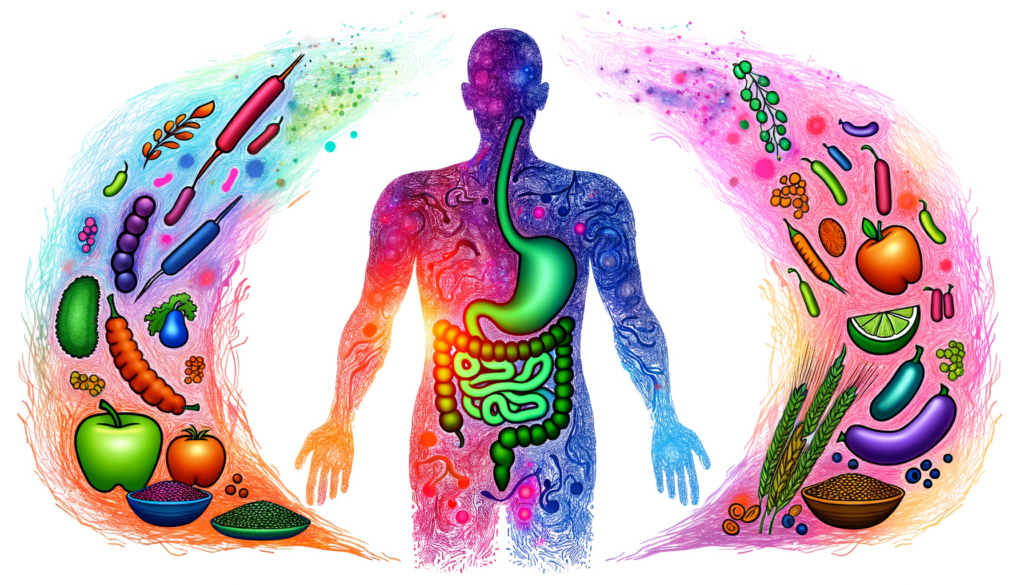Understanding the Interplay Between Calorie Balance and Fertility
When it comes to fertility and reproductive health, numerous factors come into play, and one of the often-overlooked but crucial aspects is calorie balance. The relationship between calorie intake and fertility is complex and multifaceted, involving hormonal balance, metabolic health, and overall well-being.
### The Impact of Calorie Balance on Hormonal Health
Hormonal balance is a cornerstone of reproductive health. Calories play a significant role in maintaining the optimal levels of hormones necessary for fertility. For instance, calorie restriction or excessive calorie intake can disrupt the balance of hormones such as leptin, insulin, and gonadotropin-releasing hormone (GnRH), which are essential for the regulation of the reproductive cycle[1).
Leptin, a hormone produced by fat cells, is particularly important. It signals the brain about energy availability and is critical for the proper functioning of the hypothalamic-pituitary-gonadal (HPG) axis. When calorie intake is too low, leptin levels drop, which can lead to a reduction in GnRH secretion and subsequently affect the production of follicle-stimulating hormone (FSH) and luteinizing hormone (LH), both of which are vital for ovulation and sperm production[1).
### The Role of Nutrition in Fertility
Nutrition is a key component of fertility nutrition. A balanced diet that includes the right amount of calories, along with essential nutrients such as proteins, healthy fats, and complex carbohydrates, is crucial. Foods rich in antioxidants like berries, leafy greens, and nuts can help reduce oxidative stress, which is known to impair fertility. Additionally, omega-3 fatty acids found in fish like salmon and sardines support hormone production and overall reproductive health[2).
It is also important to consider the quality of calories. Consuming high amounts of processed foods, sugars, and unhealthy fats can lead to inflammation and metabolic disorders, which can negatively impact fertility. On the other hand, whole foods and a balanced diet can support metabolic health and maintain optimal calorie balance.
### Case Studies and Real-World Examples
Several studies have highlighted the importance of calorie balance in fertility. For example, a study published in the journal “Human Reproduction” found that women who maintained a healthy weight and calorie balance had higher success rates with in vitro fertilization (IVF) compared to those who were underweight or overweight[3).
In another instance, a case study involving a woman with polycystic ovary syndrome (PCOS) showed that achieving a balanced calorie intake through a tailored diet plan significantly improved her hormonal balance and fertility outcomes. The diet included regular meals, balanced macronutrients, and avoidance of excessive sugar and processed foods[4).
### Practical Tips for Maintaining Calorie Balance
To maintain optimal calorie balance for fertility, here are some practical tips:
- Consult a Nutritionist: Working with a nutritionist can help you create a personalized diet plan that meets your calorie and nutrient needs.
- Use Calorie Tracking Tools: Utilize tools like the Calorie Calculator Cloud to track your daily calorie intake and ensure you are within the optimal range.
- Eat Regular Meals: Consuming regular, balanced meals helps maintain stable energy levels and supports hormonal balance.
- Incorporate Physical Activity: Regular physical activity, such as walking or yoga, can help manage weight and improve overall health without excessive calorie expenditure.
- Avoid Extreme Diets: Steer clear of extreme calorie restriction or overconsumption, as both can disrupt hormonal balance and fertility.
### The Importance of Lifestyle Changes
Beyond diet, lifestyle changes can also significantly impact fertility. For instance, managing stress through techniques like meditation or deep breathing exercises can help stabilize hormones. Additionally, ensuring adequate sleep and maintaining a healthy work-life balance are crucial for overall reproductive health.
Companies like Fitbit and Apple Watch offer tools that can help track sleep patterns and physical activity, providing valuable insights into lifestyle habits that may be affecting fertility.
### Conclusion and Next Steps
In conclusion, calorie balance plays a critical role in fertility and reproductive health. By understanding the interplay between calorie intake, hormonal balance, and overall nutrition, individuals can take proactive steps to support their reproductive well-being.
If you are considering starting a family or are experiencing fertility issues, it is essential to consult with healthcare professionals and nutritionists to develop a personalized plan. Tools like the Calorie Calculator Plans can be invaluable in tracking and managing your calorie intake effectively.
By combining a balanced diet with healthy lifestyle habits and using the right tools, you can optimize your calorie balance and improve your chances of achieving reproductive health and fertility.
For more detailed information and personalized advice, visit the Calorie Calculator Cloud website and explore the various resources available to support your journey towards better fertility and reproductive health.








